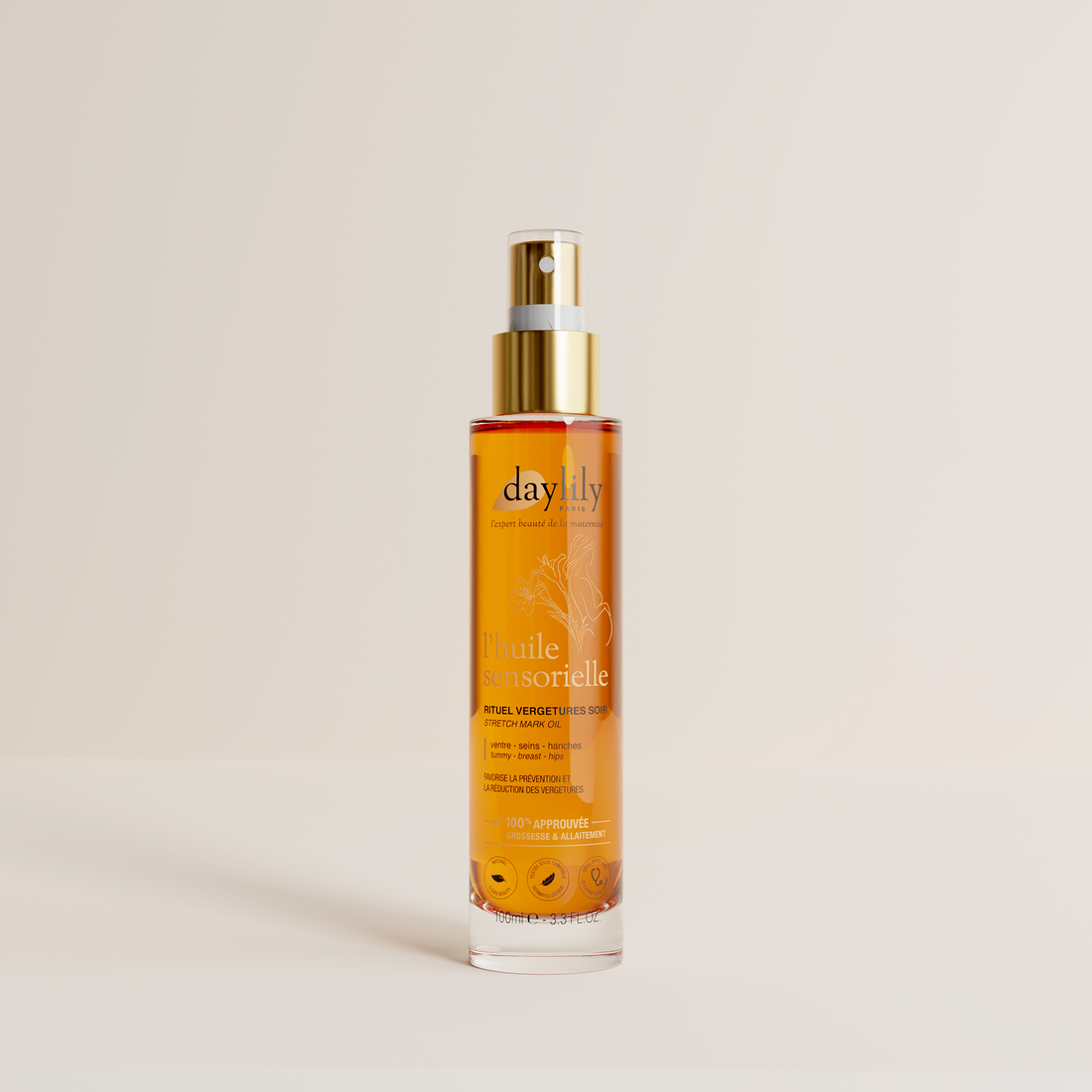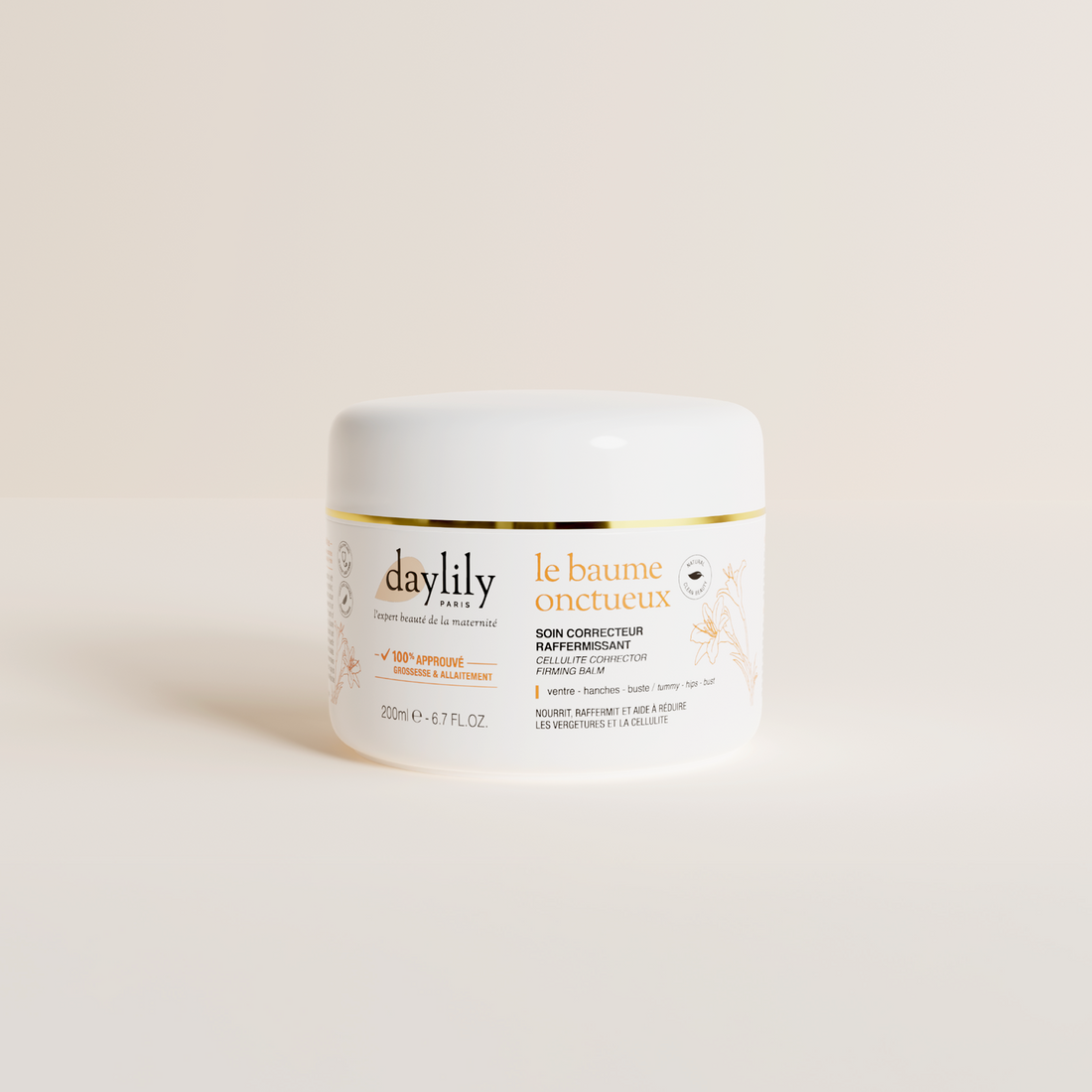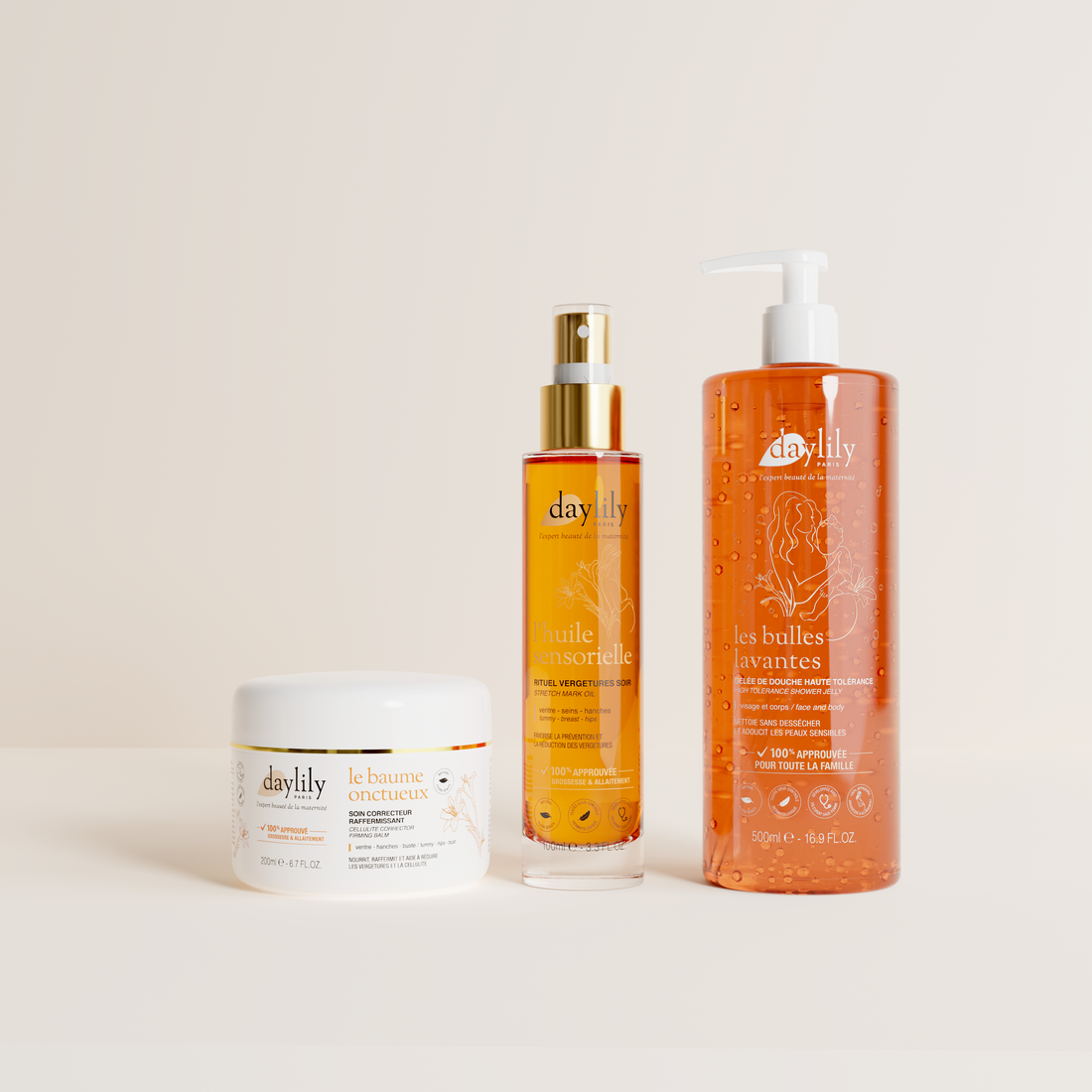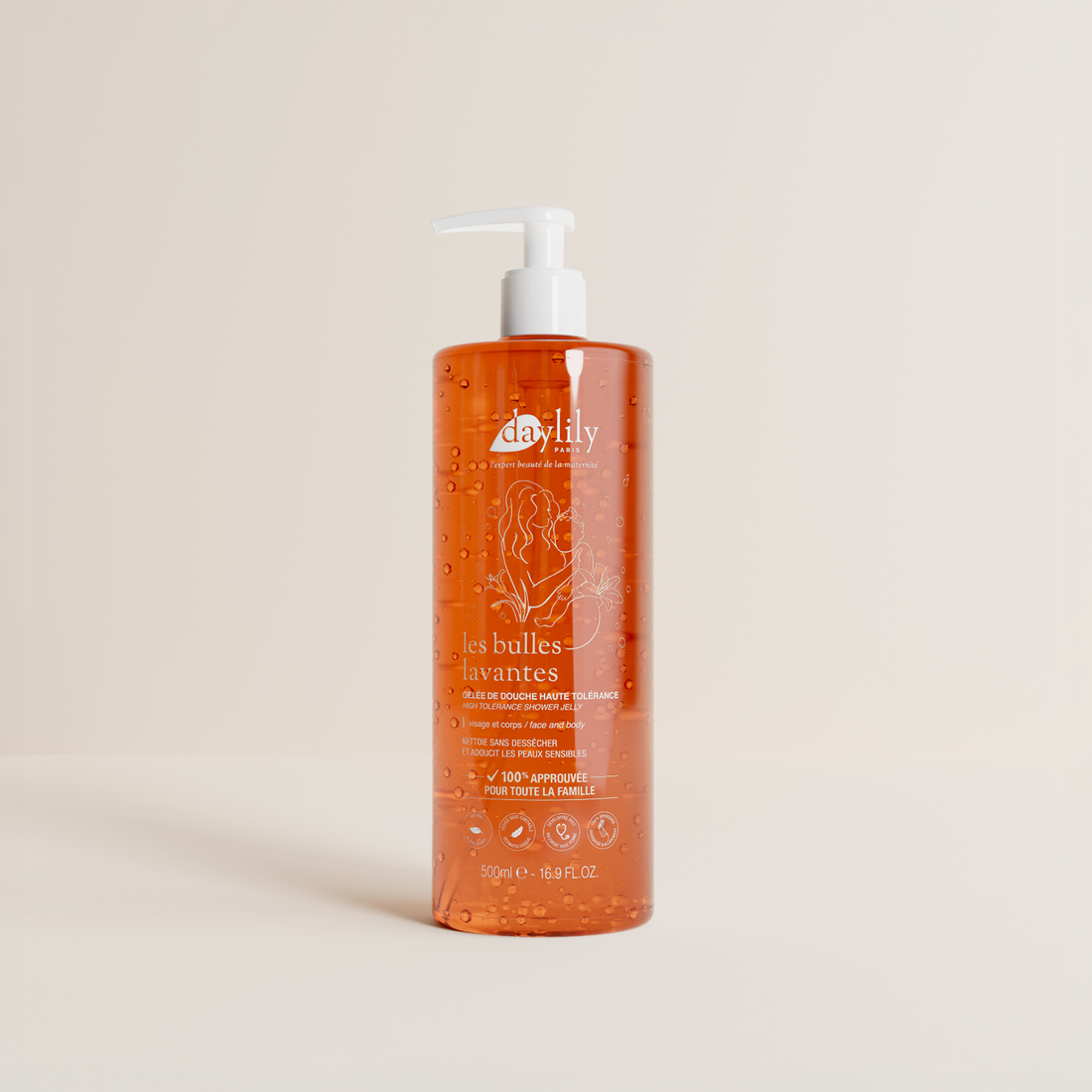- Taking care of your body after childbirth
- Simplifying your daily life with a newborn
- Getting started with food diversification
- Practical tips for baby meals
- Each parent moves at their own pace
- What to remember
Taking care of your body after childbirth
Your body has changed, it has carried life, and after birth it deserves gentleness and attention. You don't need a perfect program, just small routines that feel good.
A few simple steps to integrate:
• Apply a nourishing anti-stretch mark oil or balm to sensitive areas (stomach, hips, chest).
• Take a few minutes for yourself during the day, even just to breathe calmly.
• Choose gentle and safe products, compatible with breastfeeding if necessary.
Simplifying your daily life with a newborn
With a baby, every minute counts. Between feedings, diaper changes, and naps (short or nonexistent), daily life can quickly become a marathon. To regain some fluidity, there are several tips that can help.
Our practical tips:
• Prepare baby's things in advance
• Freeze some meals in advance
• Plan a schedule to divide up household chores and manage any appointments your elders may have with your other half.
Getting started with food diversification
Around 4 to 6 months, your baby begins to show interest in what you eat. This is the time to start introducing solid foods, an important stage in your baby's development.
How do you know if your baby is ready?
• He holds his head well
• He shows curiosity during your meals
• He readily puts objects in his mouth. No need to force things. Observe, test, adjust.
Where to start diversification?
Every baby develops at their own pace. It's important to introduce one new food at a time to monitor for possible reactions or allergies. Here are some ideas for those first homemade purees or compotes:
• Soft and digestible vegetables: carrot, zucchini, sweet potato
• Cooked or ripe fruit: apple, pear, banana
• Starchy foods: potato, rice, semolina
• Proteins (after 6 months): white meat, cooked and mixed fish, hard-boiled egg
• Fat: 1 teaspoon of vegetable oil rich in omega-3
In quantity?
Start with 1 to 2 teaspoons and gradually increase. Milk remains the main food until 12 months.

Practical tips for baby meals
It's not always easy to organize meals while being a tired new parent. Certain tools can really make this period easier, especially for cooking at home without spending too much time. A baby food processor allows you to:
• Steam, blend and reheat quickly
• Prepare several meals in advance
• Easy to clean
• Adapt the textures according to the baby’s age: smooth purée, ground, small pieces, etc.
Discover here: Béaba steam cooking robots
Each parent moves at their own pace
Do you see a thousand recommendations… and just as many conflicting opinions? That's normal. Your baby's diet is built step by step. There's no perfect schedule, only yours. Here are a few guidelines to reassure you:
• Grimaces are normal (and even expected)
• It may take 10 attempts before a food item is accepted
• Amounts vary from baby to baby
• It's okay to decline, test, and then come back later
• The important thing is to offer it regularly and gently
What to remember
Postpartum and the beginning of life as a new parent are a sensitive period, but not a fixed one. Taking care of yourself is not a luxury, it's a necessity. Diversification is a mutual learning process: baby discovers, you learn to observe, adjust, and suggest.
Well-chosen care, a little organization, and a few good tools can make all the difference in your daily life.









